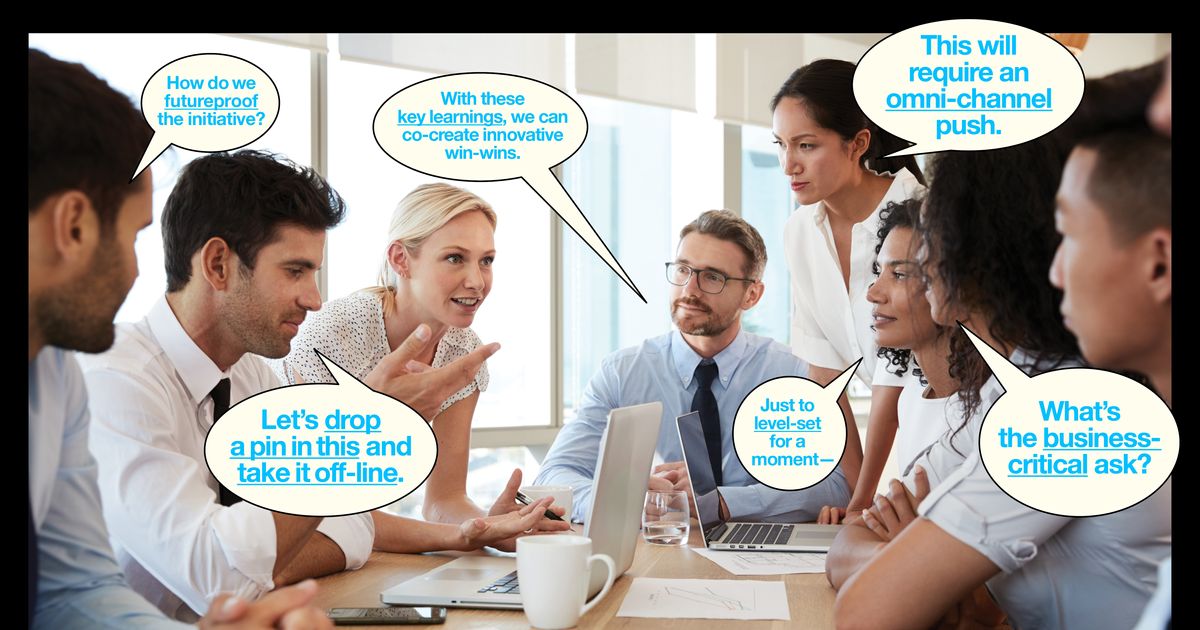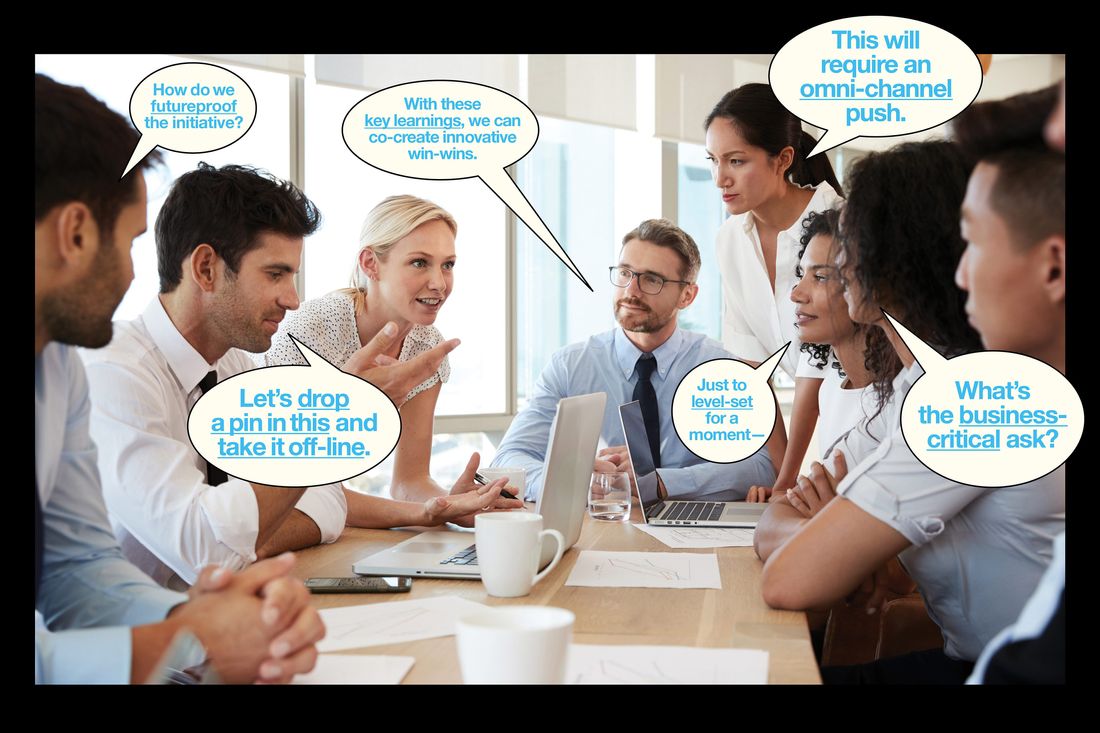An article I happened to find:

 www.vulture.com
www.vulture.com

The essay goes on to further discuss what the author calls "garbage language" - needless verbiage that obfuscates, which either says nothing at all, or takes a paragraph to say something that could be said in a single sentence.

Why Do Corporations Speak the Way They Do?
The pernicious spread of garbage language.
I worked at various start-ups for eight years beginning in 2010, when I was in my early 20s. Then I quit and went freelance for a while. A year later, I returned to office life, this time at a different start-up. During my gap year, I had missed and yearned for a bunch of things, like health care and free knockoff Post-its and luxurious people-watching opportunities. (In 2016, I saw a co-worker pour herself a bowl of cornflakes, add milk, and microwave it for 90 seconds. I’ll think about this until the day I die.) One thing I did not miss about office life was the language. The language warped and mutated at a dizzying rate, so it was no surprise that a new term of art had emerged during the year I spent between jobs. The term was parallel path, and I first heard it in this sentence: “We’re waiting on specs for the San Francisco installation. Can you parallel-path two versions?”
Translated, this means: “We’re waiting on specs for the San Francisco installation. Can you make two versions?” In other words, to “parallel-path” is to do two things at once. That’s all. I thought there was something gorgeously and inadvertently candid about the phrase’s assumption that a person would ever not be doing more than one thing at a time in an office — its denial that the whole point of having an office job is to multitask ineffectively instead of single-tasking effectively. Why invent a term for what people were already forced to do? It was, in its fakery and puffery and lack of a reason to exist, the perfect corporate neologism.
The expected response to the above question would be something like “Great, I’ll go ahead and parallel-path that and route it back to you.” An equally acceptable response would be “Yes” or a simple nod. But the point of these phrases is to fill space. No matter where I’ve worked, it has always been obvious that if everyone agreed to use language in the way that it is normally used, which is to communicate, the workday would be two hours shorter.
The essay goes on to further discuss what the author calls "garbage language" - needless verbiage that obfuscates, which either says nothing at all, or takes a paragraph to say something that could be said in a single sentence.
